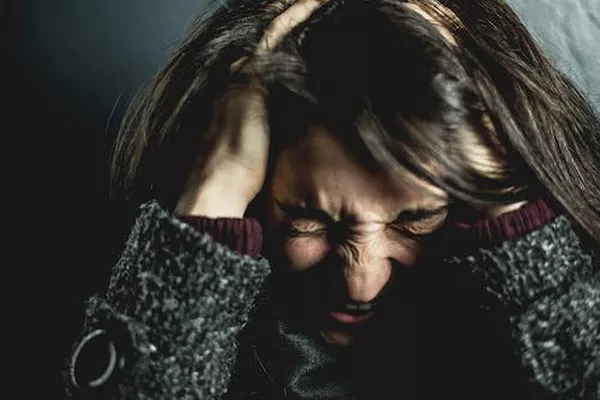Social anxiety is a common and often debilitating condition that affects millions of people worldwide. It is characterized by an intense and persistent fear of social situations, which can lead to avoidance and significant distress. While social anxiety is a complex mental health issue, it typically arises from a combination of genetic, environmental, and psychological factors.
Genetic Predisposition
Genetics can play a significant role in the development of social anxiety. Research has shown that individuals with a family history of anxiety disorders, including social anxiety, are at a higher risk of developing the condition themselves. Certain genetic traits and variations may make some individuals more susceptible to experiencing excessive fear and anxiety in social situations.
Brain Chemistry and Neurotransmitters
The brain’s chemistry and neurotransmitter activity are also implicated in the development of social anxiety. It is believed that an imbalance in neurotransmitters, such as serotonin and gamma-aminobutyric acid (GABA), can contribute to heightened anxiety levels. These imbalances can affect how the brain processes social cues and responds to social situations, leading to increased social anxiety.
Childhood Experiences and Trauma
Traumatic or adverse childhood experiences can significantly impact the development of social anxiety. Childhood bullying, emotional abuse, or humiliating experiences in social settings can leave lasting emotional scars and contribute to social anxiety later in life. These early traumas can shape one’s beliefs about themselves and others, leading to heightened social fears.
Overprotective Parenting
Overprotective or excessively controlling parenting styles can inadvertently foster social anxiety in children. When parents restrict their children’s social interactions or discourage them from taking risks, it can inhibit the development of social skills and self-confidence. This overprotection may instill a heightened fear of social situations and judgments.
Social Learning and Observational Learning
People often learn behaviors and beliefs through observation and social learning. If individuals grow up in an environment where they witness others displaying anxious behaviors in social situations, they may adopt similar patterns of anxiety. Observing parents, siblings, or peers struggling with social anxiety can contribute to its development.
Low Self-Esteem and Negative Self-Perception
Low self-esteem and negative self-perception can be both a cause and a consequence of social anxiety. Individuals with low self-esteem may feel inadequate, unattractive, or inferior to others, which can intensify social fears. On the other hand, repeated experiences of social anxiety can erode self-esteem, creating a vicious cycle of self-doubt and avoidance.
Perfectionism
Perfectionism, or the relentless pursuit of flawless performance and approval from others, is often linked to social anxiety. The fear of making mistakes or being judged harshly can lead to avoidance of social situations where perceived imperfections might be exposed. This perfectionistic mindset can fuel and perpetuate social anxiety.
Negative Social Experiences
Past negative social experiences, such as rejection, humiliation, or bullying, can leave lasting emotional scars and contribute to the development of social anxiety. Individuals who have encountered these adverse social events may become hypersensitive to potential judgment or criticism, leading to heightened anxiety in social settings.
Cultural and Societal Factors
Cultural and societal factors can also influence the prevalence of social anxiety. Societies that emphasize individual achievement, competition, and the importance of social status may inadvertently contribute to increased social anxiety. Cultural norms and expectations regarding social behavior can create pressure and fear of non-conformity.
Biological Factors
Certain biological factors, such as an overactive amygdala, can contribute to social anxiety. The amygdala is a part of the brain responsible for processing emotions, including fear and anxiety. In individuals with social anxiety, the amygdala may be hyperresponsive to social cues, leading to heightened fear responses in social situations.
Personality Traits
Certain personality traits may increase the risk of social anxiety. For example, individuals with high levels of introversion, shyness, or neuroticism may be more prone to experiencing social anxiety symptoms. These personality traits can predispose individuals to heightened self-consciousness and social fears.
Substance Abuse
Substance abuse, including alcohol and drug misuse, can exacerbate and contribute to social anxiety. While some individuals may use substances as a way to self-medicate and alleviate social anxiety symptoms temporarily, it can lead to increased anxiety and worsen the condition over time.
Stress and Life Changes
Stressful life events, major life changes, or transitions can trigger or exacerbate social anxiety. Moving to a new city, starting a new job, or experiencing significant personal losses can create uncertainty and insecurity, which may intensify social fears and anxieties.
Conclusion
Social anxiety is a complex condition that arises from a combination of genetic, environmental, and psychological factors. While the exact cause of social anxiety may vary from person to person, understanding the potential contributors can be a critical step in addressing and managing the condition. Treatment options, including therapy, medication, and lifestyle changes, can help individuals with social anxiety lead fulfilling lives and develop effective coping strategies.
Related topics:



















